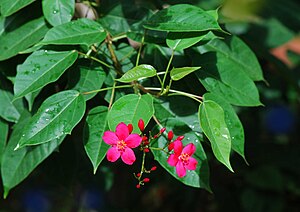Background
To date, oil-rich plants are the main source for biodiesel products. Because concerns have been voiced about the impact of oil crop cultivation on the price of food commodities, the interest in oil plants not used for food production and amenable to cultivation on non-agricultural land has soared. As a non-food, drought-resistant and oil-rich crop, Jatropha curcas L. fulfils many of the requirements for biofuel production.
Results
We have generated 13,249 expressed sequence tags (ESTs) from developing and germinating Jatropha seeds. This strategy allowed us to detect most known genes related to lipid synthesis and degradation. We have also identified ESTs coding for proteins that could be involved in the toxicity of Jatropha seeds. Another unexpected finding is the high number of ESTs containing transposable element-related sequences in the developing seeds library (800) when contrasted with the number found in the germinating seeds library (80).
Conclusions
The sequences generated in this work represent a considerable increase in the number of sequences deposited in the public databases. These results can be used to produce genetically improved varieties of Jatropha with higher oil yields, different oil compositions and better agronomical characteristics.
Related articles by Zemanta
- Africa seeks clean, profitable biofuel (saaea.blogspot.com)












